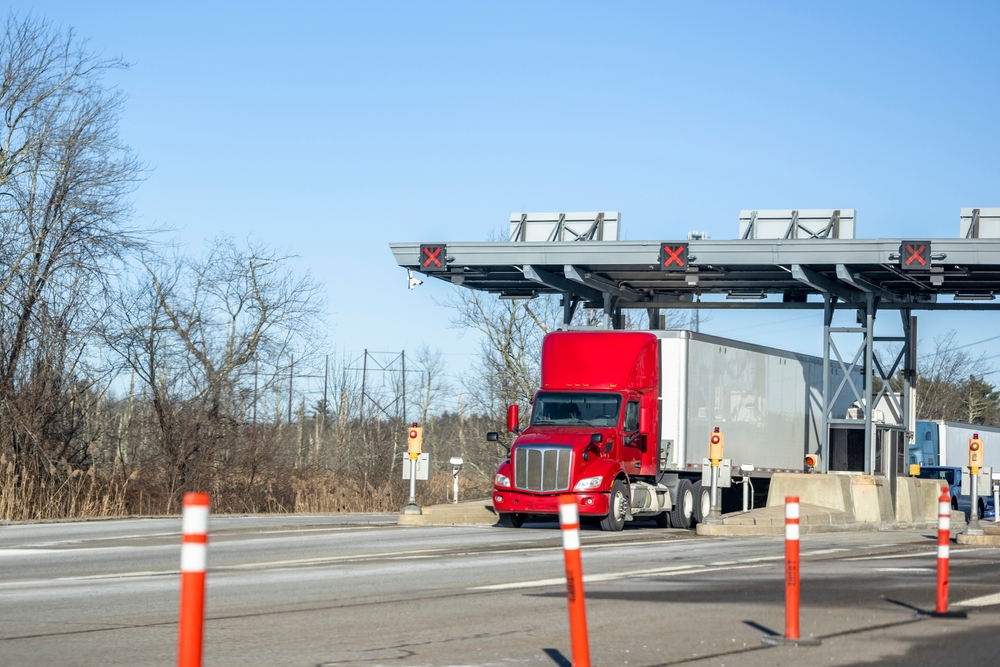It’s hard to overstate the importance of understanding taxes for truckers. Truck drivers play a crucial role in keeping the wheels of our economy turning. They transport goods across long distances, ensuring that essential products and materials reach their destinations. However, with great responsibility comes the need for a clear understanding of the financial aspects of the profession.
Taxes are a significant part of a trucker’s financial life, and having a comprehensive understanding of how they work is essential for financial success. This guide explores the world of taxes for truckers to help you keep your finances on the right track.
Types of Taxes for Truckers
There are several types of taxes that truckers and trucking companies must file. They include:
- Income tax — Just like any other type of work, truck drivers must pay income tax on any earnings they receive throughout the year. Depending on the situation, this may include federal and state income taxes and self-employment taxes.
- Fuel tax — Fuel taxes are included in the price you pay at the pump, but truckers that cross state lines may also need to pay IFTA taxes.
- Heavy Vehicle Use Tax — Truckers who regularly drive on public highways must pay a use tax to help contribute to their upkeep. The Heavy Vehicle Use Tax (HVUT) is also known as Form 2290 or the Big Rig Tax.
- Other taxes — Depending on the situation, owner/operators and contractors may also have to pay franchise taxes, property taxes, gross receipts taxes, and other federal, state, and local taxes.
Navigating Big Rig Tax
The big rig tax, or HVUT, can be confusing when you’re filing the first time. This tax was created as a way of making heavy vehicles pay their fair share for the wear and tear they cause on our highways and roads.
Who Must File Form 2290?
The tax is applied to any vehicle with a taxable gross weight of at least 55,000 lbs. that routinely uses public highways. This includes agricultural vehicles that drive at least 7,500 miles on highways or other vehicles that drive at least 5,000 miles.
How to File Form 2290
To file the HVUT, you’ll need several pieces of information:
- Business name and address
- Employer identification number (EIN)
- Vehicle identification number (VIN)
- Taxable gross weight of the vehicle
- First month the vehicle was in use
Once you’ve gathered this information, you can file your HVUT online in less than five minutes by using expresstrucktax.com.
Tax Benefits for Truck Drivers
There are a number of tax benefits available for truck drivers, particularly those who are classified as self-employed. Truck drivers must provide documentation, typically in the form of receipts, for anything they deduct.
Truckers may file any or all of these deductions, provided they were specifically for work use and have not been recompensed by an employer or other entity. For instance, if you receive a per-diem to pay for food on the road, you cannot then file a tax deduction for the same receipts.
Vehicle-Related Expenses
Truckers often have to purchase items for their vehicles. This could be items like motor oil, air filters, tarps, chains, or any other part or item used on or for your vehicle.

Tolls or Parking Fees
If you travel on toll roads or park overnight in lots that charge a fee, you can deduct these fees from your taxes.
Taxes and Licenses
Any business taxes or licenses that you pay for your business can then be deducted from your personal taxes as a self-employed individual. This may include sales tax on vehicles, HVUT, and fees associated with your CDL.
Insurance Premiums
Truckers may be able to include insurance premiums for policies like commercial auto liability, property damage, or other business-related insurance policies. They may also be eligible to deduct personal health insurance premiums from their personal taxes, on Schedule 1 of Form 1040.
Dues for Professional Organizations
If you pay dues to a union or another trucking association of some sort, you may be able to deduct these fees as a business expense.
Subscription Fees
If you pay to subscribe to trucking-related publications or websites, these may also be deductible as business expenses.
Educational Expenses
Any tuition expenses related to your CDL or other certifications can be deducted as a business expense.
Tools and Equipment
Any tools or other special equipment needed for your work can be deducted as a business expense.
Uniforms or Specialized Safety Gear
The clothes you wear may be deductible, but only if they meet certain criteria. If you buy uniforms required by your employer or if you must wear specialized safety gear (goggles, back braces, specialized footwear etc.) for your work, these are deductible. Normal clothing cannot be deducted, even if it is only worn for work.
Electronic Devices
Phones, tablets, or computers may be deductible, provided they are used solely for work.
Meals and Overnight Expenses
Long-haul truckers, that is, those who drive distances that require them to be away from home overnight, may be able to deduct the costs of meals and overnight stays.
Medical Expenses
Medical exams that are required as a condition of work can be deducted as a business expense.
Traditional Office Expenses
Any office expenses needed to conduct business, such as postage, paper and ink, faxing and photocopying services, or software used to run the business, can be deductible expenses.
Personal Products
Any personal products that are required for a life lived away from home qualify as deductible expenses. This could include a cooler or mini fridge to store food and drinks in the truck, flashlights, sunglasses, sleeper cabin bedding, laundry expenses on the road, cleaning products, etc.
Frequently Asked Questions
What is a big rig tax?
IRS Form 2290 is sometimes called the “big rig tax.” Its actual name is the Heavy Highway Vehicle Use Tax, and it taxes heavy vehicles that routinely travel on public highways. The tax is then used for maintenance and repairs to those highways.
How do I file taxes as a truck driver?
There are many ways to file tax form 2290, but we recommend you use our e-filing service. It’s one of the fastest options available and so easy to use that you can even file from your truck! Plus, our guarantee means you can file with confidence, knowing that you’ll receive your stamped Schedule 1 in mere minutes.
Can truck drivers claim tax deductions?
Yes. There are a number of tax deductions available to truck drivers, including many expenses related to life on the road.
What are the tax benefits for truck drivers?
There are several tax deductions that truck drivers can claim. These include:
- Vehicle-related expenses, including parts, maintenance, and even fuel
- Tolls or parking fees
- Taxes and licenses you pay for your business
- Insurance such as commercial auto liability, property damage
- Dues for unions or other trucking associations
- Subscriptions to trucking-related publications or websites
- Educational expenses related to your CDL or other certifications
- Tools and equipment needed for work
- Uniforms or specialized safety gear
- Electronic devices such as phones or tablets used solely for work
- Meals and overnight expenses for long-haul truckers
- Medical exams that are required as a condition of your work
- Traditional office expenses
- Personal products required for a life lived away from home
Of course, not all of these expenses are applicable in all situations, and you cannot claim anything that was reimbursed or expensed by your employer.
How does the IRS handle taxes for truckers?
There are a few different ways that income taxes are calculated for truckers, and it all has to do with your employment status.
If you’re an actual employee of a company, you’ll receive a form W-2 from your employer in the early weeks of the year. This is the easiest filing option for trucker taxes because your employer has already done much of the work for you.
Owner/operators file their taxes as “self-employed,” meaning that they must file quarterly throughout the year and are on their own to handle all payments and calculations. It also means they must pay self-employment taxes, which can add another 10% to the amount due.
Finally, contractor workers who are new to this status may wonder how their taxes are handled. For the IRS, a contract worker is no different from an owner/operator or any other type of self-employment. For these individuals, they must still file quarterly and must still pay self-employment taxes.
Conclusion
Taxes for truckers can be overwhelming, but with the right help, they don’t have to be. File your HVUT with ExpressTruckTax, and you’ll have access to our support team in English or Spanish. We can also help you generate IFTA reports for your quarterly filings.

